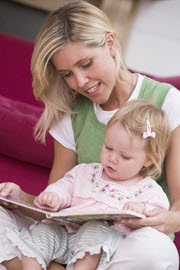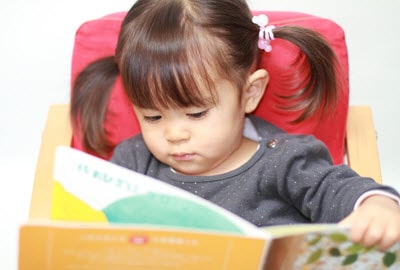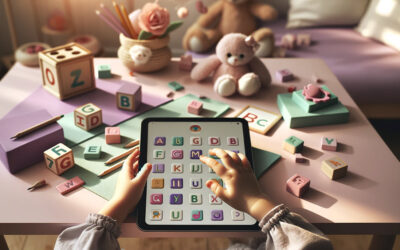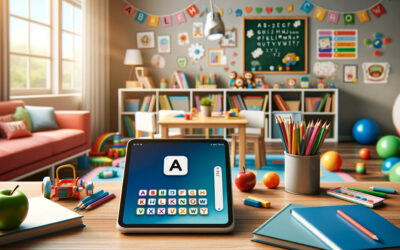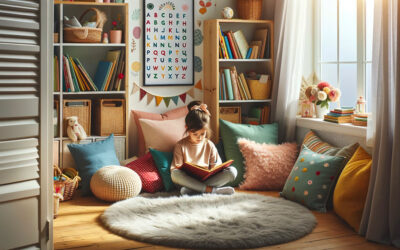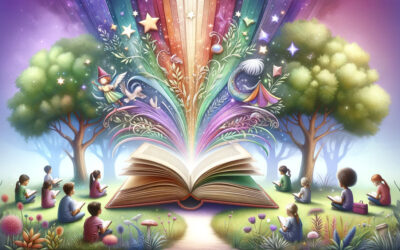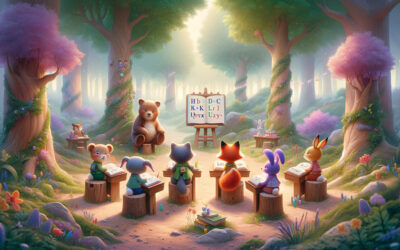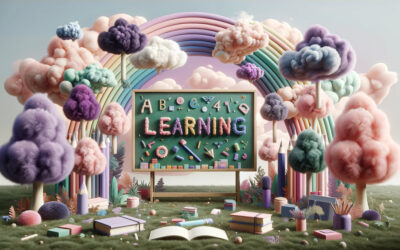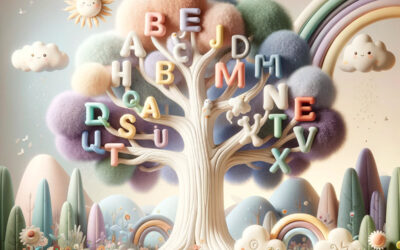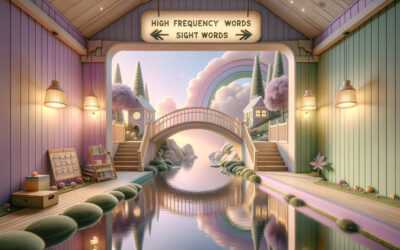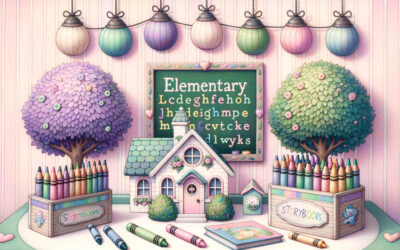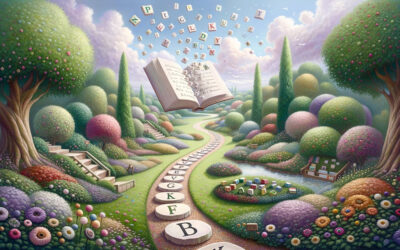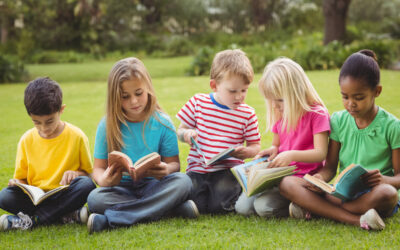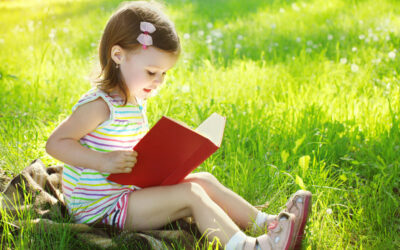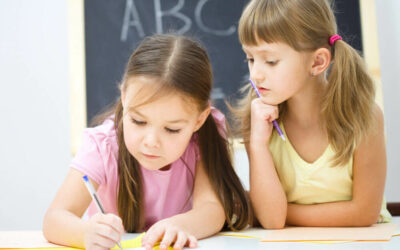How to Teach a 2 Year Old to Read: Our Recommendations
We all want our kids to have a leg up in life, and with the increase of technology, learning how to read is more important than ever.
You’re here because you want to know how to teach your 2-year-old to read, but it’s hard to know where to start.
In this blog post, we’ll see if two-year-olds can read and recommend ways to develop your little ones reading and literacy skills!
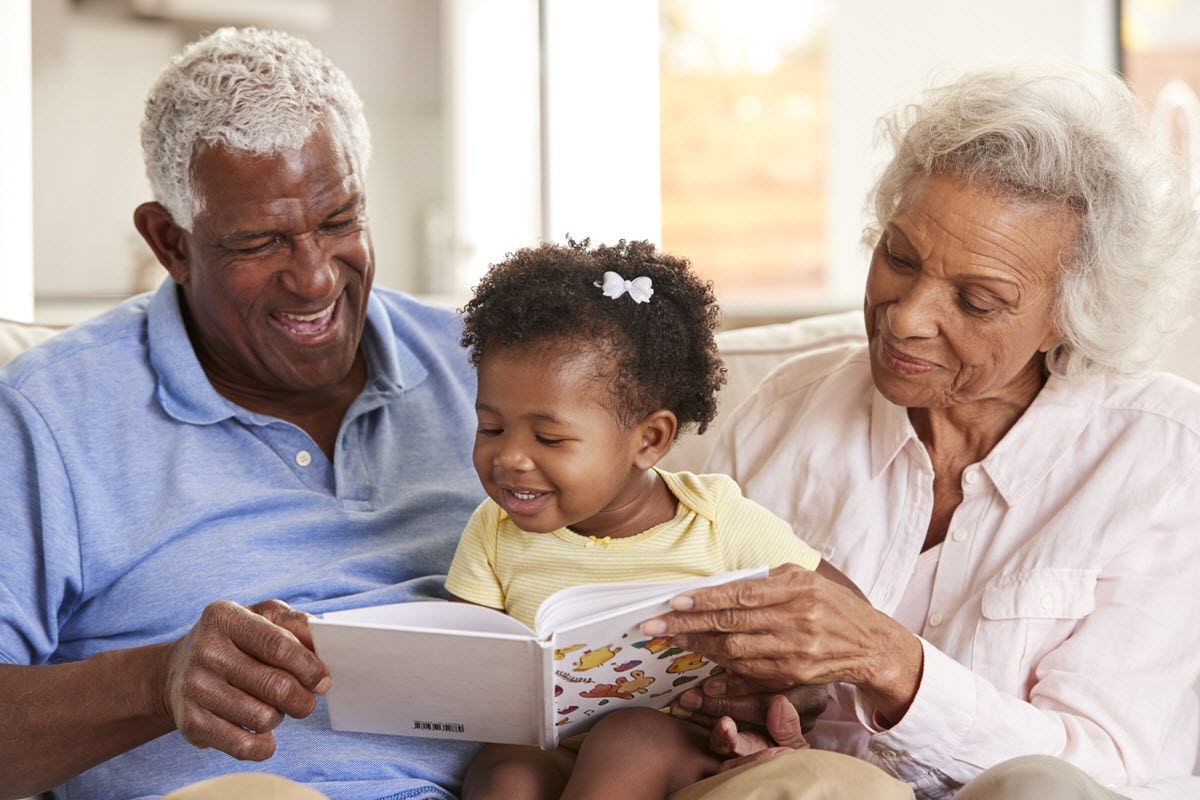
See Our Recommended Alphabet Toy for Two Year Olds
Can a child read at 2 years old?
Most kids learn to read between the ages of six and seven.
However, a 2-year-old can learn to read. Success requires patience, gentle repetition, and dedication from parents.
Keep in mind that there are no hard-and-fast rules of when a child should start reading because kids’ language development varies. But many factors go into whether or not a young child is ready, such as their level of attention, oral language acquisition skills, exposure to written words.
How 2 year olds learn
According to the National Association for Education of Young Children, play is a significant form of learning at this age. A large part of their development occurs without the need for formal lessons.
However, if you’re looking to start implementing reading lessons, a 2-year-old learns to read through repetition and dedication from the parent. They learn to read by seeing you read, being read to, learning the alphabet, reading a story repeatedly, or playing games with letters.
Before starting with direct reading lessons, you first need to check if your 2-year-old is interested in reading. So you must take the time to see if your child is receptive to learning how to read.
If they aren’t, wait a few months and try again.
Reading Readiness
Here are some of the language skills a 2-year-old should have which can help you determine their reading readiness:
- Following basic instructions
- Knowing the names of pets, siblings, and “mommy” and “daddy.”
- The ability to talk in short 3-4 word sentences
- Finishing sentences in rhymes, they’re familiar with
For more, read our article explaining the different reading milestones by age.
Whatever you do, make sure that you don’t force early reading; it can have disastrous consequences if your little one becomes put off by books altogether due to feeling pressured or otherwise frustrated during their first few lessons together as a parent-child duo.
These are supposed to be enjoyable and engaging experiences!
How to teach your 2-year-old to read
In this section, we will discuss the different ways to help develop your 2-year old’s literacy skills so that they can learn how to read.
Except for direct reading lessons, all of the tips below can be implemented with most 2-year-olds, even if they aren’t ready for explicit instruction. The earlier a child is exposed to these basic recommendations, the better.
Read to your child every day
Parents should use their fingers to trace along the words on the page when reading to children, so they begin connecting letters with what is being said.
At this age, they will mainly be interested in the pictures. However, as the months go by, their little minds start recognizing letters as meaning something more than just shapes or symbols on a page – but words that can tell an entire story!
Whenever you read a story, make sure that you use different voices for each character to make it a more engaging and fun experience. This will go a long way to instilling a love for reading that will last a lifetime.
Discuss the stories and ask questions
Encourage your child to look at pictures and ask them questions about what they see. You can do this by asking, “What color are these cars? What kind of animal is that over there?”
This will get them thinking about what is happening in the story and help to improve their comprehension skills.
Teach them about books
Teach them how to hold a book, read from left to right, and understand how they should turn the pages.
Young children often think that books are only for looking at pictures, so it’s important not to discourage exploration of the book but also make sure that you emphasize how reading is an interactive process where we can learn new things and even control how the story unfolds.
Recommended books for 2-year-olds
Simple storybooks
Simple storybooks are fantastic because they have big, easy words and colorful pictures on the pages. They also have very few words per page, so they’re perfect for children who are just learning how to read.
Try looking for books that feature a favorite character from their favorite television show or animal book with simple sentences and pictures of the animals doing what is written in the sentence. This way, your child will be familiar with both reading and following along.
Rhyming books
Rhyming books are great for 2-year-olds because they allow them to memorize the words by repeating them. They can also interact with the story by following along with the words and pictures.
Another point in favor of rhyming books is that most of them have three or four lines of text per page, making it easier for a child to follow along and see which line rhymes with the last one.
Read alphabet books
Alphabet books are a great way to show children that letters make up words and help them learn letter sounds.
Kids will enjoy looking at the pictures as you read aloud these simple stories about animals or objects, starting with different letters. They might also pick out words that begin with those same letters in other books after listening.
Developing phonemic awareness
Phonemes are sounds that make up the English language. They consist of consonants, short vowels, long vowels, and digraphs.
Phonemic Awareness consists of learning those letter sounds and how to interpret them within a word.
This skill will help your child learn sounds in words so they can read more easily and fluently and spell better. It will also help with their listening skills because they’ll hear sounds in words easier than before!
Here are some fun ways to develop phonemic awareness
Sing songs and nursery rhymes
Songs and nursery rhymes like Twinkle Little Star teaches children rhyming and helps them hear sounds and syllables in words, which can aid their ability to read.
Learning the alphabet and letter sounds
This is the age where kids usually develop an interest in the letters of the alphabet. Help them learn their names and the sounds that they make. You can also teach letter senses like recognizing uppercase letters from lowercase letters or seeing which ones have curved lines versus straight lines in different fonts.
Play with alphabet toys
Little ones will love exploring the world of letters with alphabet toys. They are great for getting your kids to get familiar with how they sound and their shapes.
Learn the alphabet song
Learning the alphabet song is a fun way to learn the letters and their sounds. Learning the alphabet will help kids to learn to read sooner. Sing it with your child, and you’ll be surprised how quickly they will learn their ABCs!
Get a phonemic awareness focused learn to read program
Phonemic awareness is essential to children’s reading ability because it helps children acquire and use the phonological system, which allows them to understand how words are created.
With a phonemic awareness-focused learning-to-read program, kids can make connections between letters and sounds as they read words. There are many programs out there, and they all have different features
One of the best learning-to-read programs we recommend is Children Learning Reading, as it’s based on developing phonemic awareness and teaching your little one to read fluently.
You don’t have to wait until your child is 3 or 4 years old before you start teaching them how to read.
By the time they are 2, a lot of their brain development has happened. They can make connections between letters and sounds which will help with reading comprehension later on in life.
Start early by reading books every day with them. Books that teach about different subjects like animals, transportation, colors, shapes, etc., ask questions as they go through the storybook together (even if it’s just one sentence), discuss what the book was about at dinner time over food or while getting ready for bedtime rituals.
And if your little one is ready for reading lessons, make sure you invest in a phonemic awareness-based reading program like Children Learning Reading which you can get here.
Can Struggling Readers Catch Up? Insights on How Struggling Readers Can Catch Up
Can Struggling Readers Catch Up? Insights on How Struggling Readers Can Catch UpToday we’re tackling the crucial question: Can struggling readers catch up? In this article, we offer a deeper understanding of effective strategies and supportive practices designed to...
When Should I Be Concerned About My Child’s Reading? When to Worry If Your Child Can’t Read
When Should I Be Concerned About My Child's Reading? When to Worry If Your Child Can't ReadReading development varies widely among children, making it sometimes challenging for parents to know when to be concerned about their child's progress. This blog post explores...
Fun Unleashed: ABC Recognition Games That Kids Love
Fun Unleashed: ABC Recognition Games That Kids LoveUnderstanding the monumental role early literacy plays in a child's educational journey, the foundation of reading skills begins with mastering the ABCs. ABC Recognition Games not only pave the way for this...
Unlocking ABCs: The 5 Best Apps for Learning the Alphabet
Unlocking ABCs: The 5 Best Apps for Learning the AlphabetIn today's fast-paced digital world, the quest to find the best app for learning the alphabet for our little ones can feel overwhelming. With a myriad of options at our fingertips, how do we, as parents, make...
How to Help Students with Reading Comprehension: A Parent’s Guide to Success
How to Help Students with Reading Comprehension: A Parent's Guide to SuccessAs a guiding light for parents navigating the intricate path of enhancing their child's reading comprehension, understanding how to help students with reading comprehension is pivotal. This...
What is Skilled Reading: A Comprehensive Guide for Parents
What is Skilled Reading: A Comprehensive Guide for ParentsImagine a world where every child reads not just with ease, but with an understanding deep enough to traverse the realms of imagination and reality. This is the promise of skilled reading, a pivotal element in...
How to Learn the Phonetic Alphabet
How to Learn the Phonetic AlphabetAs parents, we all dream of the moment our child reads their first word. This journey begins with the foundational skill of understanding the phonetic alphabet, a crucial stepping stone in early reading development. The phonetic...
Learning the Alphabet and Sounds: A Comprehensive Guide to Early Literacy Skills
Learning the Alphabet and Sounds: A Comprehensive Guide to Early Literacy SkillsDiving into the world of letters and sounds can be an enchanting journey for little ones. Mastering the alphabet and its myriad of sounds is not just about rote learning; it's about...
The Importance of Learning the Alphabet: Laying the Foundation for Reading Success
The Importance of Learning the Alphabet: Laying the Foundation for Reading SuccessWhen we think about the foundational elements of literacy and education, few things are as fundamental and powerful as learning the alphabet. For many children, the journey into the...
High Frequency Words vs Sight Words in Early Reading: Unlocking the Puzzle
High Frequency Words vs Sight Words in Early Reading: Unlocking the PuzzleAh, the tender journey of watching your little one morph from babbling toddler to a curious preschooler, keen on exploring the world of letters and words. It's a captivating transition, dotted...
Words for Kindergarten to Learn: Unlocking a World of Communication and Discovery
Words for Kindergarten to Learn: Unlocking a World of Communication and DiscoveryEmbarking on the educational journey with your little one is a blend of excitement, anticipation, and a dash of uncertainty. As parents, we're wired to provide the best stepping stones...
How to Help Kindergarteners Learn Sight Words: A Journey of Discovery and Mastery
How to Help Kindergarteners Learn Sight Words: A Journey of Discovery and MasteryEmbarking on the literacy journey is a monumental step in a child’s life, with sight words paving the way for this exciting adventure. Imagine the spark of joy in a child's eyes when they...
Learning the Letters in Your Name: Unlocking the First Door to Literacy
Learning the Letters in Your Name: Unlocking the First Door to LiteracyOh, the delightful spark in a child's eyes when they recognize the letters in their name for the first time! It’s a magical blend of curiosity and pride, wrapped in tiny moments of joy. This simple...
Alphabet Letters in Order with Numbers for Your Little Learner
Alphabet Letters in Order with Numbers for Your Little LearnerEmbark on a delightful journey where numbers meet letters, unlocking a world of playful learning for your young minds. Ever noticed how the gleam in their eyes sparkles a tad brighter when they successfully...
Teaching ABCs to Preschoolers: Embarking on an Alphabet Adventure
A Guide to Teaching ABCs to Preschoolers: Embarking on an Alphabet AdventureEmbarking on the adventure of teaching ABCs to preschoolers is a journey filled with giggles, squiggles, and oh-so-many memorable moments. This endeavor is much more than just singing the 'A,...
The Best Way to Teach Letter Recognition: Laying the Alphabetical Foundation
The Best Way to Teach Letter Recognition: Laying the Alphabetical FoundationEvery child's journey into the realm of literacy begins with a whimsical dance of lines and curves, the alphabet. It's a fascinating sight, seeing a child's eyes light up with recognition as...
Phonemic Awareness vs Letter-Sound Correspondence: Unlocking The Mysteries of Early Literacy
Phonemic Awareness vs Letter-Sound Correspondence: Unlocking The Mysteries of Early Literacy Embarking on the literacy journey is akin to unlocking a treasure chest for your little one, filled with the jewels of knowledge, expression, and imagination. However,...
How to Use Elkonin Sound Boxes for Phonics
What is Decoding in Phonics: Unlocking the Secrets of Early Literacy "Sound boxes for phonics" might just be the magical tool you've been seeking to enhance your child's grasp of phonics. As a parent, you've likely faced the challenge of turning phonics into a...
What is Decoding in Phonics: Unlocking the Secrets of Early Literacy
What is Decoding in Phonics: Unlocking the Secrets of Early Literacy Have you ever watched a child struggle to read a simple sentence, their frustration mounting with each failed attempt? The culprit could be a lack of understanding in decoding, a crucial skill...
How to Teach the Difference between B and D: The Best Ways to Stop Letter Reversals
How to Teach the Difference between B and D: The Best Ways to Stop Letter Reversals Are you wondering how to teach the difference between B and D to your little one? Well, you're not alone! Letter reversal, especially between 'B' and 'D', can be quite a bugbear...

Natalie is a full-time blogger and former elementary school teacher who specializes in helping parents teach their kids to read. With a qualification in Early Childhood Education, over 7 years of experience in education, and a passion for literacy, Natalie provides practical tips, activities, and resources for parents looking to support their child’s learning-to-read journey. She is the proud mom of two young readers and loves sharing her knowledge and experience with other parents. Natalie enjoys spending time with her family, reading, and exploring the great outdoors when she’s not blogging.

